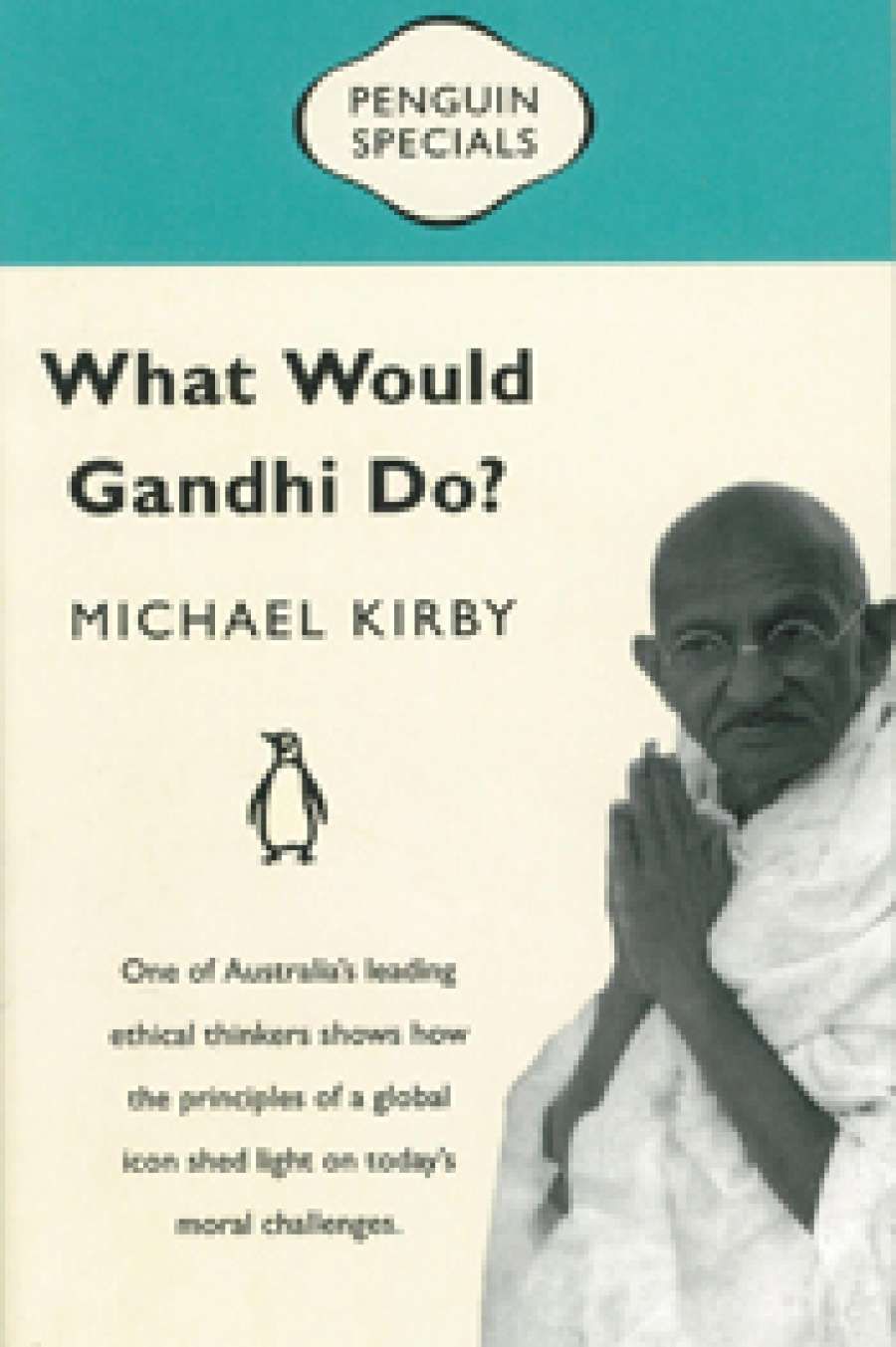
- Free Article: No
- Contents Category: India
- Review Article: Yes
- Article Title: Misreading the Mahatma
- Online Only: No
- Custom Highlight Text:
Two years ago, Pulitzer Prize-winning author Joseph Lelyveld published a partial biography of Mahatma Gandhi (Great Soul: Mahatma Gandhi and His Struggle with India, 2011), which outraged public opinion in India and served as a vehicle for the self-promotion of leading politicians who railed against the supposed contents. Although the book was not yet available on the subcontinent, and so had not been read by the politicians, populist calls for its banning came thick and fast. The controversy could be traced back to a review of the book in the Wall Street Journal by an admirer of Gandhi’s nemesis Winston Churchill. The reviewer claimed that Lelyveld’s book allowed the reader to conclude that Gandhi ‘was a sexual weirdo, a political incompetent and a fanatical faddist’, not to mention a homosexual and a racist, something that the book itself did not say.
- Book 1 Title: WHAT WOULD GANDHI DO?
- Book 1 Biblio: Penguin, $9.99 pb, 80 pp, 9780143570707
In What Would Gandhi Do? Michael Kirby has taken up this theme. Kirby is a much admired human rights campaigner, one of this country’s best and best-known jurists, and a leading ethicist. Although he is neither a Gandhi scholar nor an anti-Gandhi revisionist (as are many recent Gandhi evaluators, who see it as their mission to discover something new about Gandhi, often something of a sexual nature, in order to debunk the ‘myth of the Mahatma’), after making the point that Gandhi was generally, but unnaturally, disgusted with sex, Kirby cuts to the chase. He makes several strong insinuations concerning Gandhi’s probable homosexuality without actually ‘outing’ the Mahatma.
 Gandhi, 1938 (photographer unknown)
Gandhi, 1938 (photographer unknown)
Of course, for Kirby this is not an exercise in Gandhi defamation. He views possible evidence of Gandhi’s homosexuality as a positive, one that supports the normalisation of varying sexualities. The task is laudable and understandable. The only problem is that, on the best available evidence, this is a misreading of Gandhi.
As a good jurist, Kirby would probably insist that he is merely engaged in a process of examining available evidence. But there is a problem. He did not have the time or expertise to do the necessary and independent research, or have quite enough familiarity with the Gandhi story, to fully understand the context of various reported events or fragments of correspondence. Instead, in this essay (based on a speech given a year earlier) he has relied on Lelyveld and given some of Lelyveld’s possible insinuations more weight than they warrant. Often the text reflects Michael Kirby’s views rather than lessons from a counterfactual twenty-first century Mohandas Gandhi.
The sketchy introductory biographical section hints at the main argument to come concerning Gandhi’s relationship with his soul mate during his formative period in South Africa. By far the longest section concerns sex and sexuality. The allusion to Gandhi’s homosexuality is based on the Mahatma’s relationship with the architect Hermann Kallenbach. Kirby’s speculations aside, in trying to understand the young South African resident Gandhi, even Lelyveld warns that in an age ‘when the concept of Platonic love gains little credence’, details of the relationship and quotation from letters ‘can easily be arranged’ to reach a conclusion that is not necessarily warranted. Lelyveld notes in Great Soul that the relationship described ‘a strong mutual attraction, nothingmore’. Kirby is unconvinced.
As Gandhi’s latest biographer, the extremely competent archivist Ramachandra Guha, points out, Kallenbach was a confirmed heterosexual and the relationship between the two was that of brothers (Gandhi Before India, 2013). A reading of Gandhi’s own letters to family members and friends clearly confirms his revulsion towards sex of any kind. Kirby focuses on a letter by Gandhi in London to Kallenbach in South Africa that refers to Vaseline and cotton wool. Overlooked by Kirby and his source Lelyveld, that sentence also refers to ‘corns’. Knowledge of the exercise habits of the almost fanatical walkers and a careful reading of the letter, as well as another of Gandhi’s references to Vaseline, indicates that the reference was to problems with Gandhi’s feet, nothing more.
‘In any case, Gandhi’s sexual orientation is not relevant to his greatness ... ’
In any case, Gandhi’s sexual orientation is not relevant to his greatness, and likewise the sexual orientation of a writer should be of no consequence in judging their work. But things are not always that simple (the personal is political). Kirby came out as gay in 1999 and since then has often spoken in support of gay rights. Here he is not speculating about Gandhi’s sexuality to denigrate Gandhi. While his cause is far nobler, Kirby probably tells us more about himself than his subject. And on his subject, a good story aside, he is almost certainly wrong.
While the part of this essay that will probably be of most interest to the majority of readers will be the section on sex and Gandhi’s sexuality, in a cursory way Kirby also touches on Gandhi’s and his own attitudes to the issues of women’s rights (Gandhi would fight for them), climate change (Gandhi would recommend ecological restraint), and animal rights (Kirby and Gandhi care about animal welfare and recommend vegetarianism). It is a pity that he did not develop these themes further.
This small dimensioned booklet, with fifty-six pages of well-spaced text, can easily be read in one short sitting. However, those seeking an introduction to Gandhi and instructive lessons from the Mahatma’s life will come away disappointed. And the many glosses on Gandhi’s life and unwarranted extrapolations will exasperate readers who have some familiarity with the Gandhi story.


Comments powered by CComment